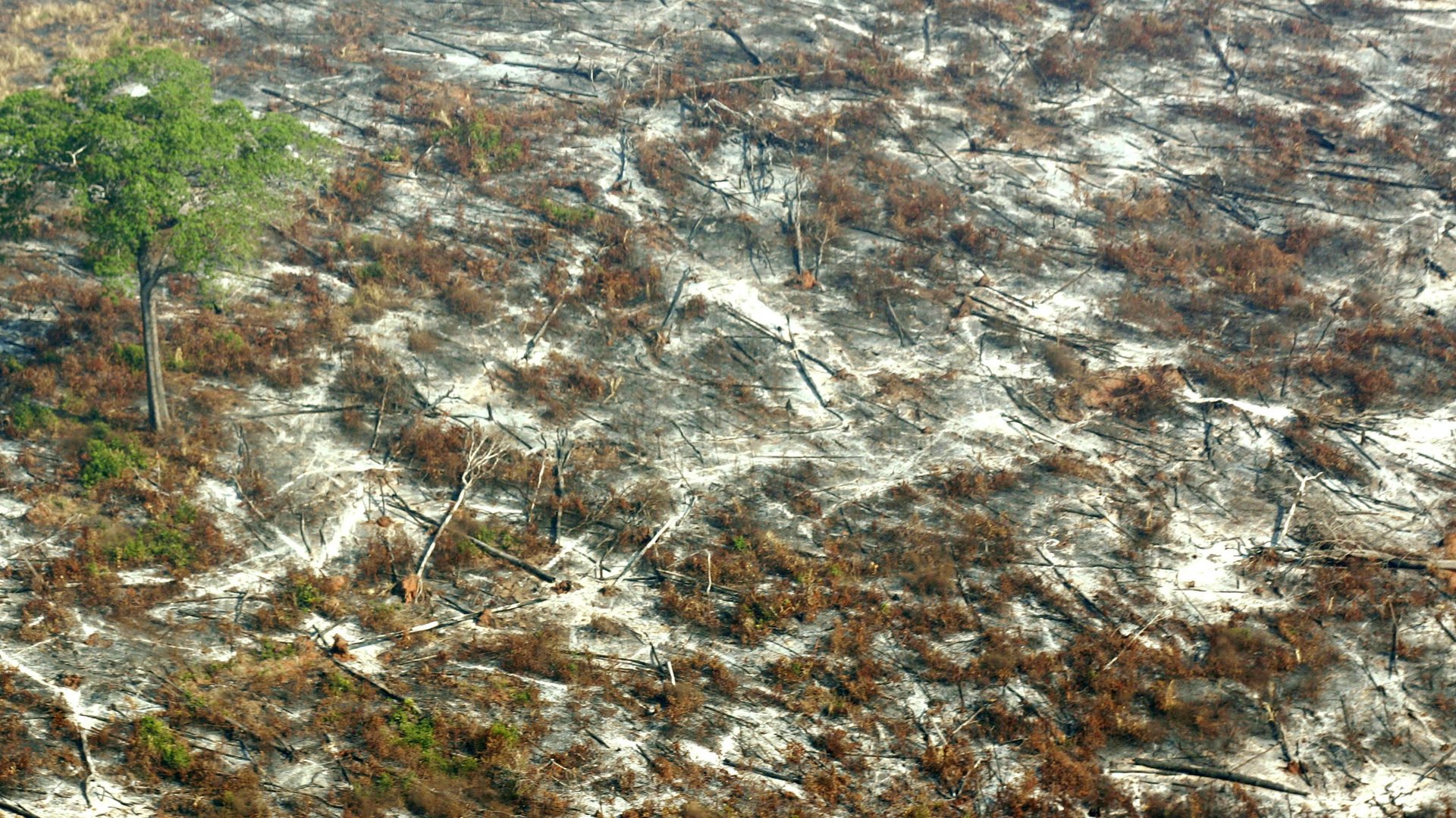It’s taken only 70 years for humans to drastically change the planet
With 7 billion of us on the planet, it’s a great time to be alive for a human. But not the rest of the ecosystems in the world.


With 7 billion of us on the planet, it’s a great time to be alive for a human. But not the rest of the ecosystems in the world.
The idea that we are now in the Anthropocene—the geological epoch in which humans began to have a serious impact on the earth—has been around since 2000. But there’s a debate about just when this new age started. Some say it was with the colonization of the Americas in the 1600s; others argue it was the Industrial Revolution in the 1800s; and still others point to the fallout from nuclear weapons testing in 1964.
Now a recent paper (paywall) by a diverse group of scientists in The Anthropocene Review has put forward the idea that human-induced changes to the earth increased dramatically after World War II. That was when existing human impacts—including extra carbon dioxide in the atmosphere, biodiversity loss, and ocean acidification—accelerated thanks to efficient technology and a larger global population able to use it.
“We’ve gone into this time where everything’s mechanized, to the point where we change things much more rapidly,” Colin Waters, a geologist from the British Geological Survey and co-author of the study, told Quartz. He explained that the Industrial Revolution started slowly and spread gradually around the planet, but that now, we operate on a much faster scale. “This 1945-1950 [period] represents a very finely tuned point in time where we think that things are changing so rapidly, we can see a distinction.”
Waters also noted a dramatic change in the distribution of wildlife as a result of human activity. “There’s a sort of statistic being passed around about the fact that 97% of all the vertebrate species on the planet by weight are actually humanity or domesticated animals,” he said. “That makes only about 3% of the vertebrates present actually wildlife, and that’s a very dramatic change to have gone through in a few centuries.”